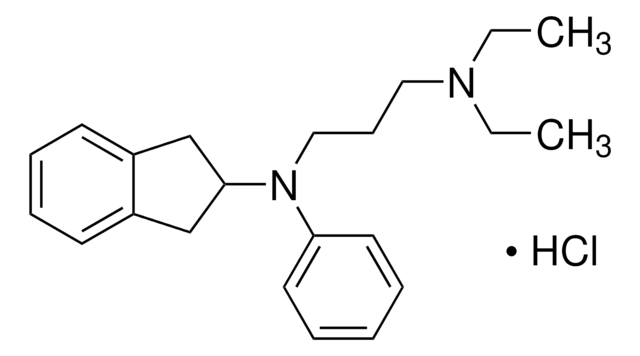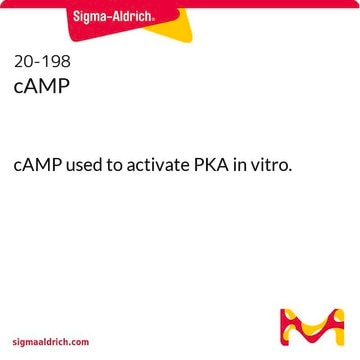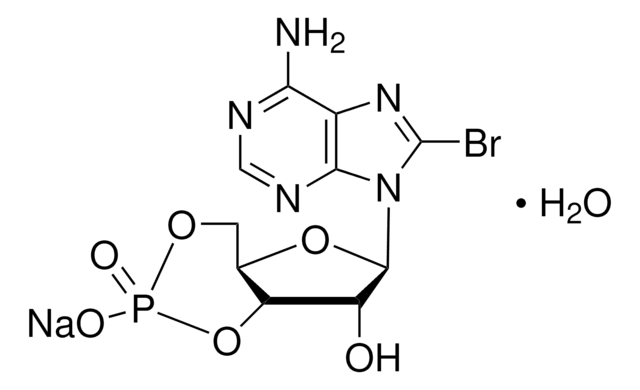A9501
Adenosine 3′,5′-cyclic monophosphate
≥98.5% (HPLC), powder, PKA activator
Synonyme(s) :
3′,5′-Cyclic AMP, Adenosine 3′,5′-cyclophosphate, cAMP
About This Item
Produits recommandés
product name
Adenosine 3′,5′-cyclic monophosphate, ≥98.5% (HPLC), powder
Niveau de qualité
Pureté
≥98.5% (HPLC)
Forme
powder
Couleur
white
Pf
260 °C (dec.) (lit.)
Solubilité
H2O: 10 mg/mL, clear, colorless (pH of aqueous solution is approx. 3.0. The sodium salt (A6885) is about 20× more soluble.)
Température de stockage
−20°C
Chaîne SMILES
Nc1ncnc2n(cnc12)[C@@H]3O[C@@H]4COP(O)(=O)O[C@H]4[C@H]3O
InChI
1S/C10H12N5O6P/c11-8-5-9(13-2-12-8)15(3-14-5)10-6(16)7-4(20-10)1-19-22(17,18)21-7/h2-4,6-7,10,16H,1H2,(H,17,18)(H2,11,12,13)/t4-,6-,7-,10-/m1/s1
Clé InChI
IVOMOUWHDPKRLL-KQYNXXCUSA-N
Informations sur le gène
human ... OPRK1(4986)
Vous recherchez des produits similaires ? Visite Guide de comparaison des produits
Application
- as cell culture medium supplement in embryonic spinal neurons
- as a component of ringer solution for perfusion studies
- to induce neuroendocrine differentiation in human lung cancer cell lines
Actions biochimiques/physiologiques
Caractéristiques et avantages
Code de la classe de stockage
11 - Combustible Solids
Classe de danger pour l'eau (WGK)
WGK 3
Point d'éclair (°F)
Not applicable
Point d'éclair (°C)
Not applicable
Équipement de protection individuelle
Eyeshields, Gloves, type N95 (US)
Certificats d'analyse (COA)
Recherchez un Certificats d'analyse (COA) en saisissant le numéro de lot du produit. Les numéros de lot figurent sur l'étiquette du produit après les mots "Lot" ou "Batch".
Déjà en possession de ce produit ?
Retrouvez la documentation relative aux produits que vous avez récemment achetés dans la Bibliothèque de documents.
Les clients ont également consulté
Notre équipe de scientifiques dispose d'une expérience dans tous les secteurs de la recherche, notamment en sciences de la vie, science des matériaux, synthèse chimique, chromatographie, analyse et dans de nombreux autres domaines..
Contacter notre Service technique











